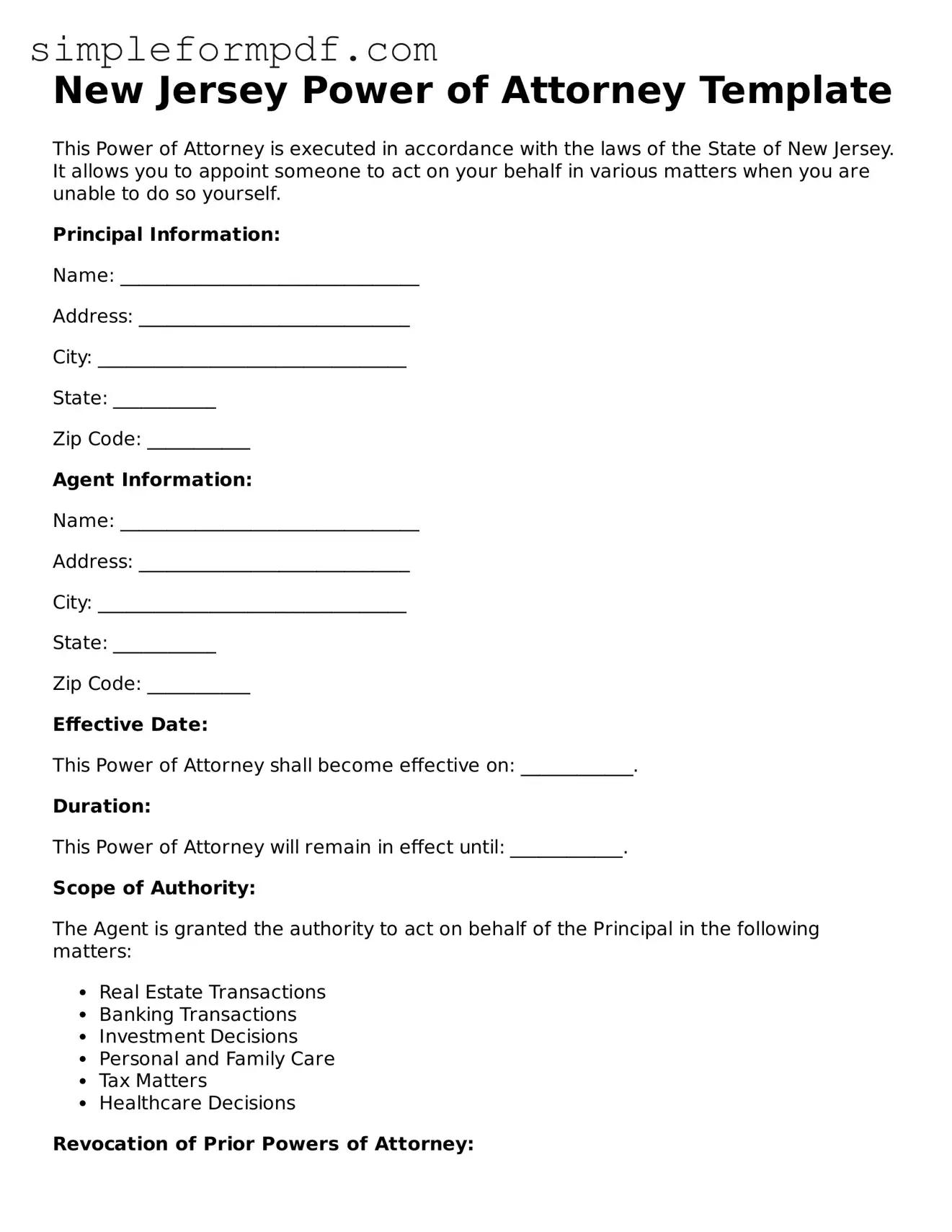Free Power of Attorney Form for the State of New Jersey
A Power of Attorney form in New Jersey is a legal document that allows one person to grant another the authority to act on their behalf in financial or legal matters. This form is crucial for ensuring that your wishes are honored, especially in situations where you may be unable to make decisions for yourself. To safeguard your interests, consider filling out the form by clicking the button below.
Launch Editor

Free Power of Attorney Form for the State of New Jersey
Launch Editor
Need instant form completion?
Finish Power of Attorney online in just a few minutes.
Launch Editor
or
Download PDF
